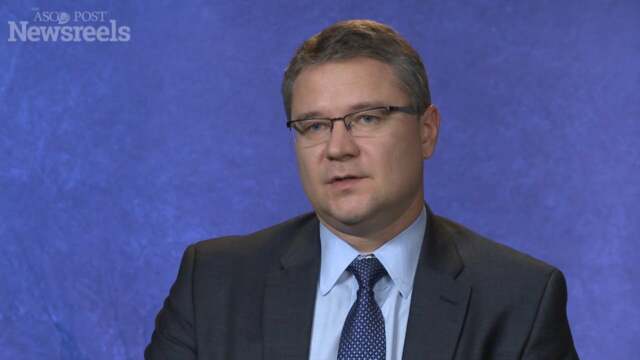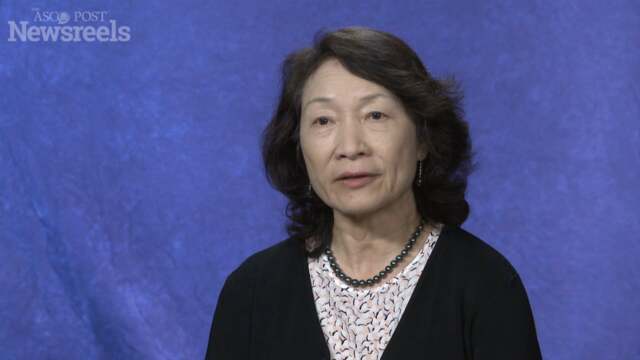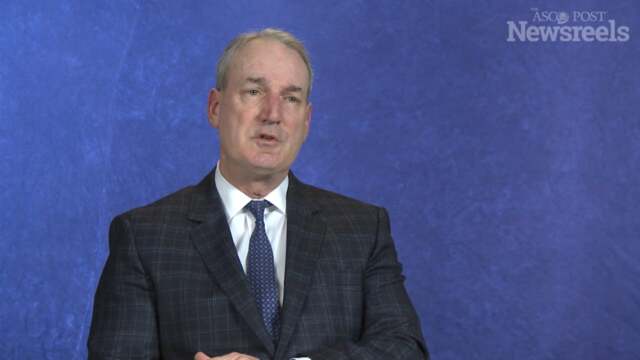Kamran Ahmed, MD, on Lung Cancer, Radiation, and Immune Checkpoint Inhibitors
2017 Multidisciplinary Thoracic Cancers Symposium
Kamran Ahmed, MD, of the H. Lee Moffitt Cancer Center and Research Institute, discusses results from a small study of pneumonitis in patients who received thoracic radiotherapy within 6 months of anti–PD-1 therapy, anti–PD-L1 therapy, anti–CTLA-4 therapy, or some combination of these drugs (Abstract 10).
Boris Sepesi, MD, of The University of Texas MD Anderson Cancer Center, discusses immune cells within tumors and the potential role for checkpoint inhibitor therapy in the neoadjuvant setting of locally advanced lung cancer (Abstract 7).
Tracey L. Evans, MD, of the University of Pennsylvania, discusses the data supporting use of chemotherapy with radiation in locally advanced non–small cell lung cancer, targeted treatments and immunotherapy, and some of the controversies now debated.
Zhongxing Liao, MD, of The University of Texas MD Anderson Cancer Center, discusses the continued improvement in planning, delivery, and patient selection for proton therapy, which can both reduce radiation exposure and increase tumor dose.
Douglas E. Wood, MD, of the University of Washington, discusses the importance of broad access to and education about lung cancer screening—now approved for people at high risk for the disease—and the need for expanded criteria for screening eligibility.
Martin J. Edelman, MD, of Fox Chase Cancer Center, discusses study findings from a phase III study of celecoxib in addition to standard chemotherapy for advanced non–small cell lung cancer with COX-2 overexpression (Abstract 2).





